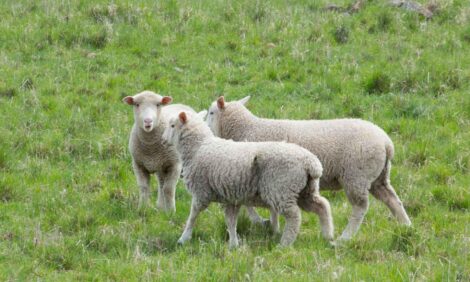



“Positive” Trade Deal to Hurt Irish Beef Sector
IRELAND – The Transatlantic Trade and Investment Partnership (TTIP) will benefit the Irish economy as a whole but is bad news for beef farmers, concludes an impact assessment.Ireland’s beef sector stands to lose between €25 and €45 million per year as output contracts between one and three per cent.
The overall economy, meanwhile, is expected to grow by 1.1 per cent gross domestic product, 5 to 10,000 more jobs and mean €1,200 more per family.
Dairy producers stand to benefit from a 10 per cent rise in total exports - €162 million on 2013 numbers.
Overall, agricultural exports will lift 2-3 per cent or by €230-270 million.
This is according to a report by Copenhagen Economics, launched by the government on Thursday, which sees investment and real wages increasing 1.5 per cent. All figures are a comparison to 2013 figures.
“The most important thing to know about TTIP is that it will improve Irish GDP by 1.1 per cent and create 5,000-10,000 extra jobs in exporting sectors,” said Minister for Jobs, Enterprise and Innovation, Richard Bruton. “That is why we prioritised this issue under our Presidency, and that is why we are strongly supporting the achievement of a comprehensive agreement now.”
He pledged to “work hard to address those challenges” in areas where they emerge.
However, farmers have slammed the figures in the report, describing it as a “wake-up call” for all involved.
"According to this report, the beef industry stands to lose between €25 and €50 million a year due to increased competition from the US,” said Irish Cattle and Sheep Farmers’ Association President Patrick Kent.
In his eyes, it is "completely intolerable" that beef farmers are being "hung out to dry" for the benefit of other sectors, something which the ICSA will not accept.
"The spin on this, of course, is that the agreement would benefit the Irish economy overall," he added.
Mr Kent questioned whether it was worthwhile sacrificing the beef sector for wider benefits and is in talks with Minister Bruton and EU Commissioner Cecilia Malmstrom over a guarantee to protect the beef sector under the agreement.
Balancing the pros and cons of the agreement, Minister Bruton said:“There is a lot of complexity and a lot of competing claims being made about TTIP.
“However it is now clear that the benefits across the economy are overwhelmingly positive, and I believe we must grasp this opportunity with both hands”.
Protecting the beef sector in the TTIP is vital, according to the Irish Farmers’ Association, which called on the government to get “immediately involved” in negotiations.
“Our Government must guard against selling out our vital beef and white meats sectors for potential gains in other areas that may not materialise,” said IFA President, Eddie Downey.
“The detailed concerns raised in an IFA assessment on TTIP are accepted as real and they will have to be fully addressed in any final trade deal.”
The report’s summary of the beef outlook under the TTIP was: “In the case of beef, we expect output to contract by between 1 per cent and 3 per cent,” said the report. “Relative to 2013, this is equivalent to a contraction of between €25 million to €45 million.”
“Output in primary production is expected to contract by approximately 1.5 per cent, equivalent to €49 million relative to 2013.”
Michael Priestley
News Team - Editor
Mainly production and market stories on ruminants sector. Works closely with sustainability consultants at FAI Farms



